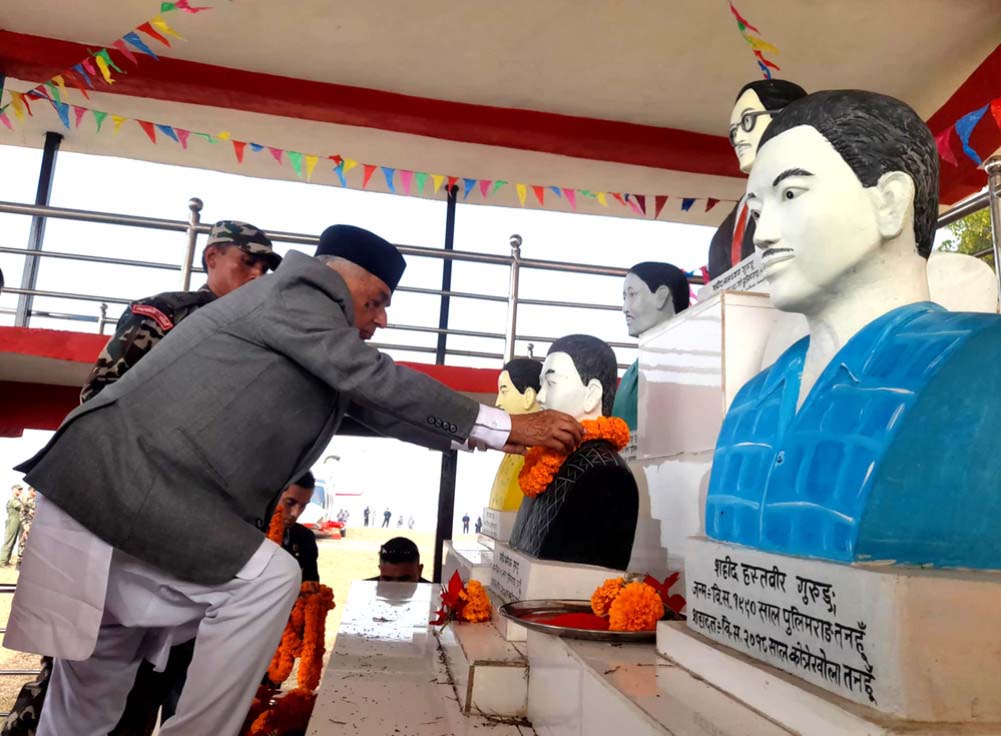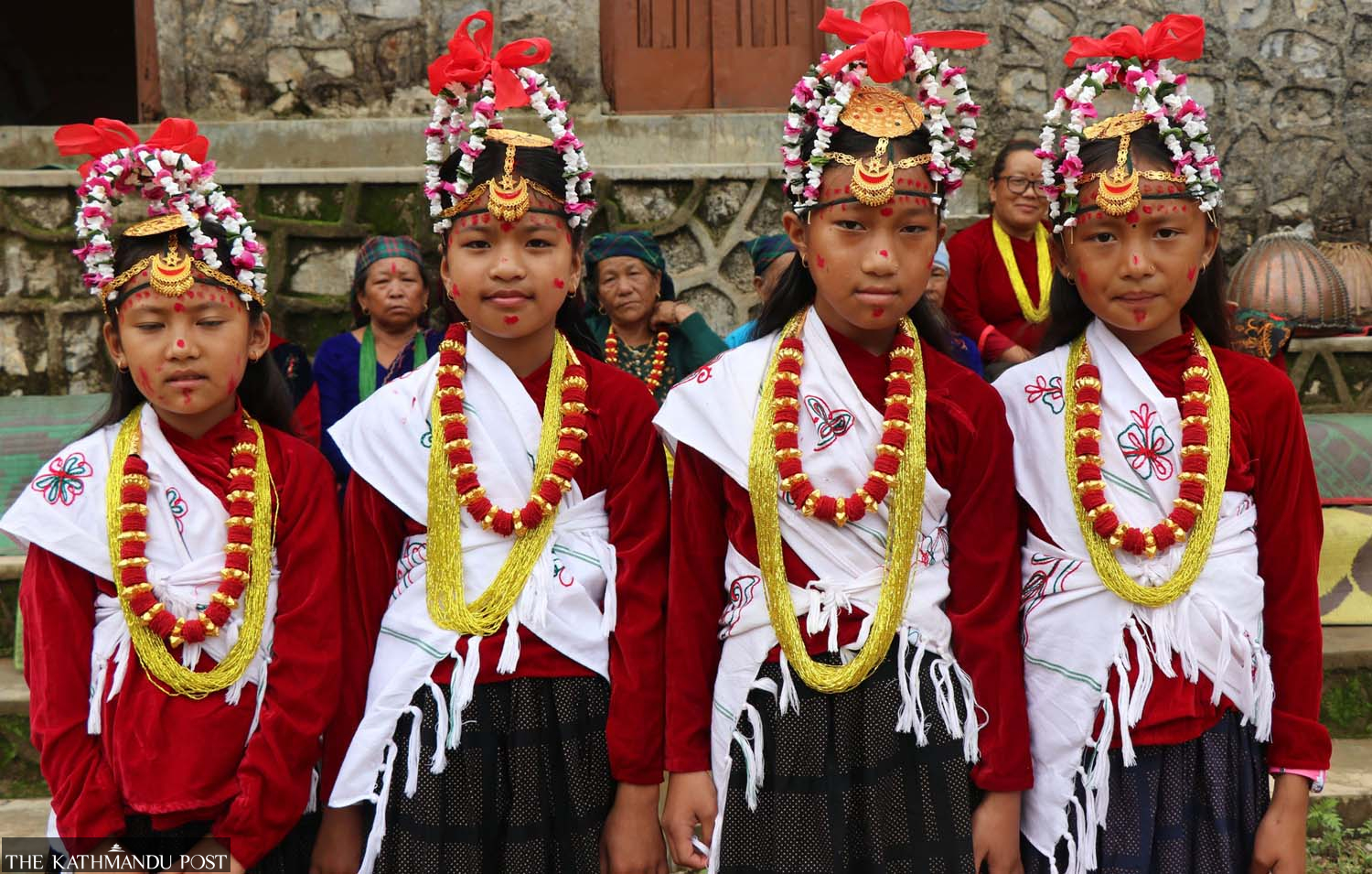Visual Stories
Bitten by loan sharks, seeking cure in Capital
For the last 18 days, Koiri, a native of West Nawalparasi and a victim of ‘meter byaj’, has been protesting at Maitighar in Kathmandu, asking for justice.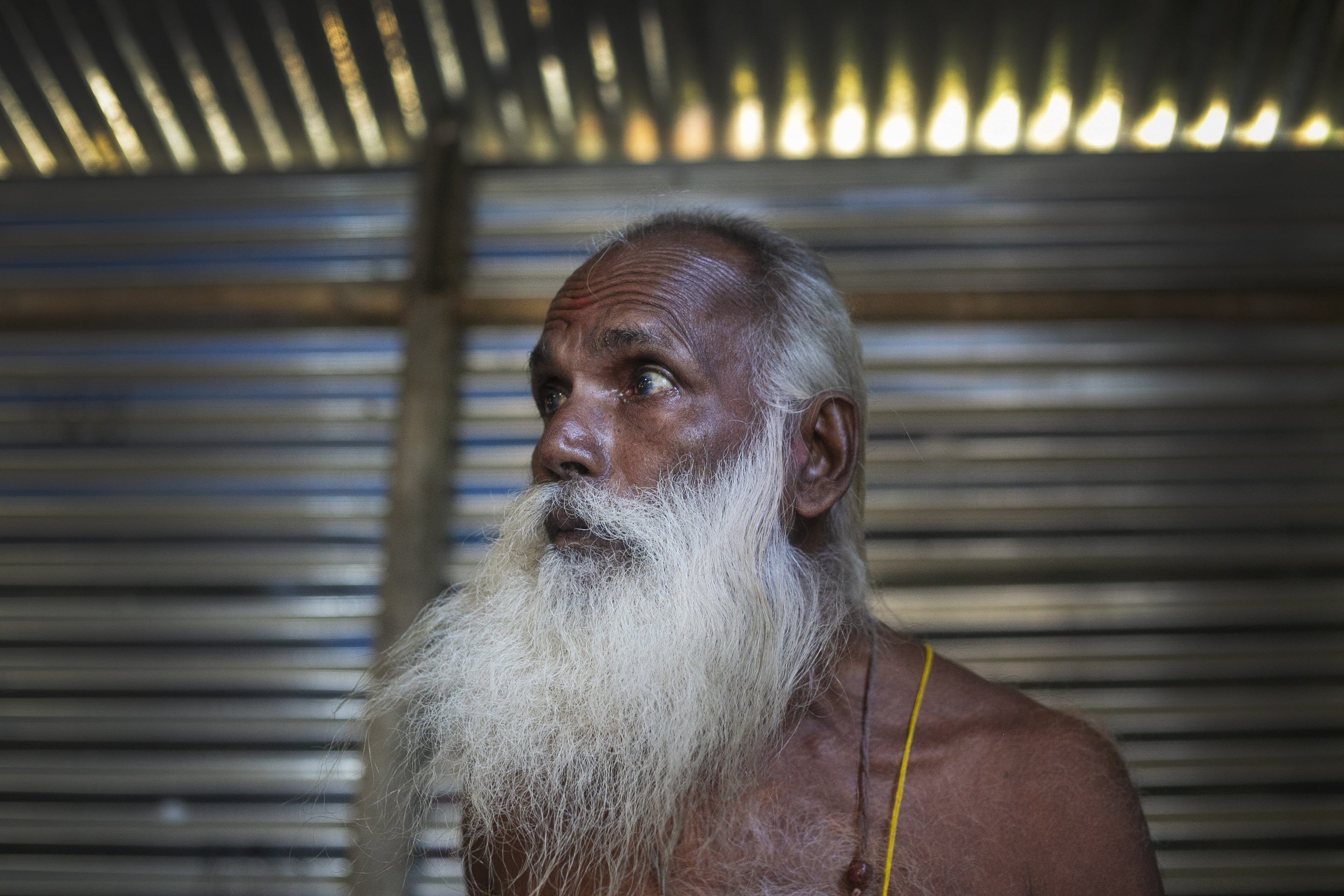
Prakash Chandra Timilsena
For the past 18 days, victims of loan sharks have been protesting at Maitighar in Kathmandu. The protesters are from the district of West Nawalparasi, one of the areas where hundreds have fallen victim to "meter byaj", a term colloquially used to denote the exorbitant interest rates charged by loan sharks.
When the protest first began, there were more than 200 protesters, but that number has now dwindled to 60. The oldest among the group is 76-year-old Prem Narayan Koiri. Six years ago, Koiri started constructing a house. Midway into the construction, Koiri ran out of money, which left him with no option but to approach a local money lender. He borrowed Rs 900,000 and kept his 12 kattha (4,056 square metres) land as collateral. So far, Koiri has already paid Rs 1.2 million, but the loan shark, Koiri says, has told him that he still owes the lender Rs 4.2 million.
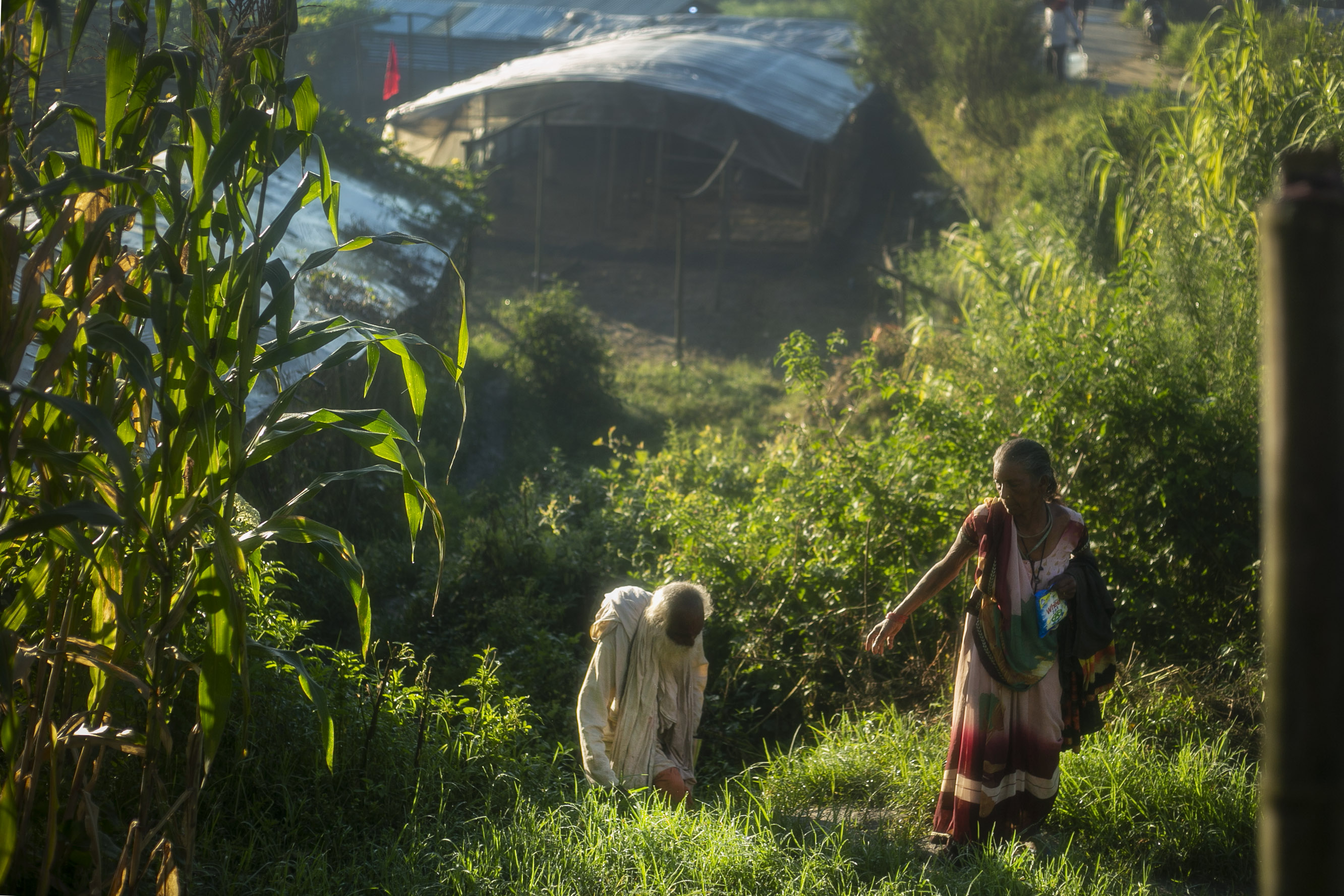
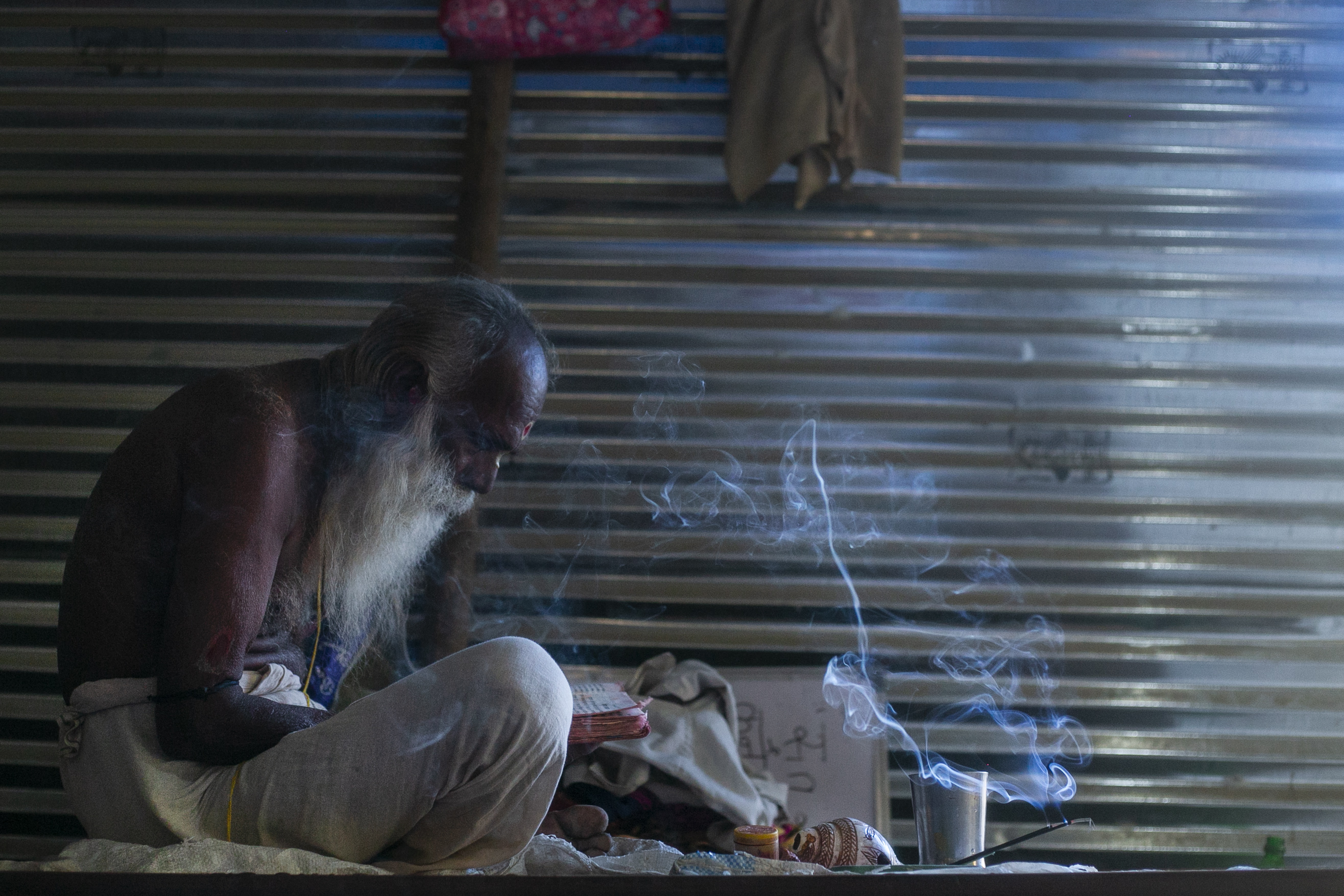
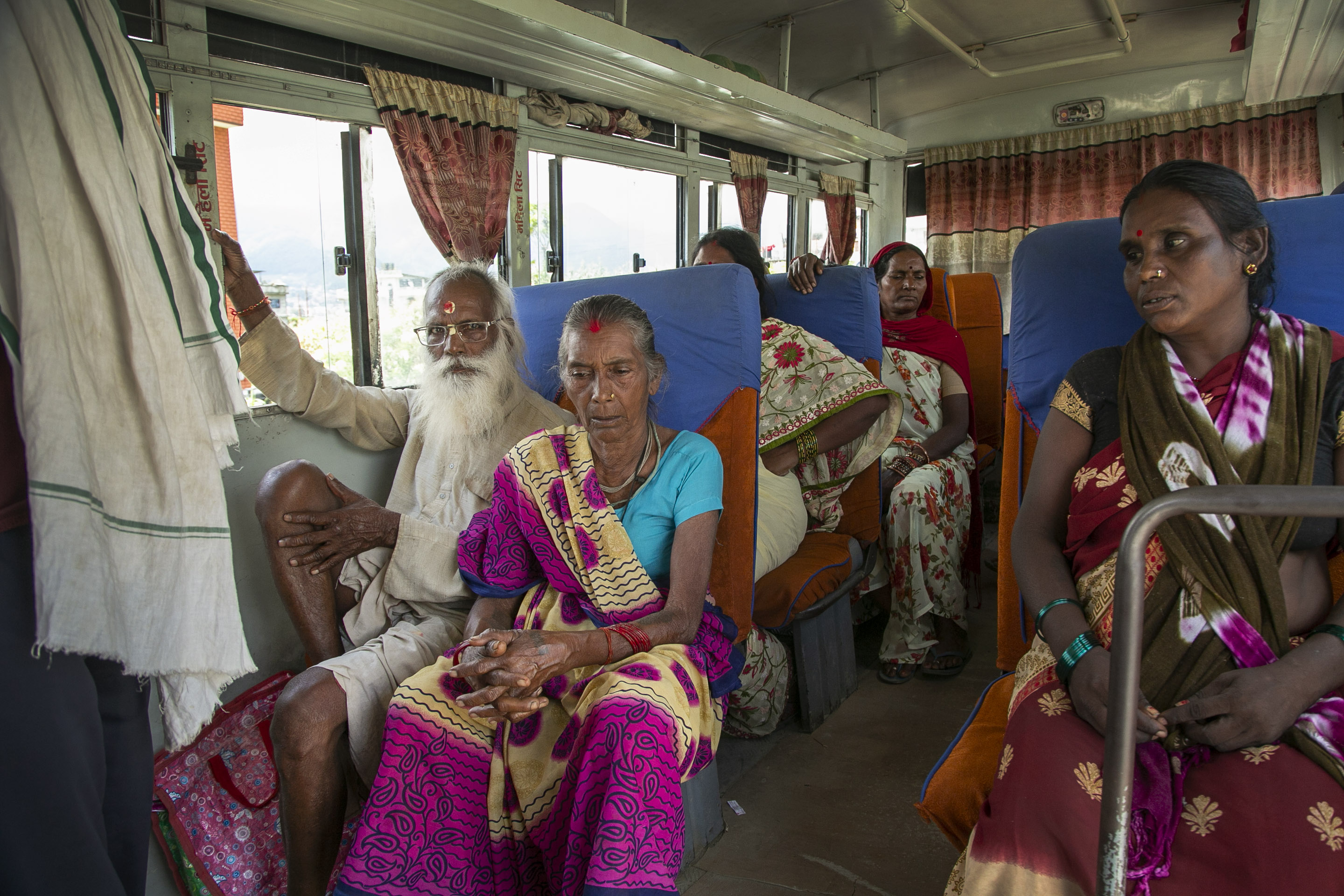
In 2017, to pay off his debt, Koiri took another loan of Rs150,000 from a different loan shark by keeping 10 kattha and 10 dhur (3549.6 square metres) land as collateral. He says he has since paid Rs600,000 to clear his second debt, but the loan shark has told him that he still needs to pay Rs1.5 million.
For the two loans that Koiri has taken, he has already kept 22 kattha and 10 dhur (7,605 square metres) land as collateral, which has now left him with just four katthas (1,352 square metres) of land. Although Koiri's neighbour Hridayesh Tripathi, who is affiliated with the People's Progressive Party, knew all too well about the injustices people were facing, he chose to keep his lips sealed, say the protestors.
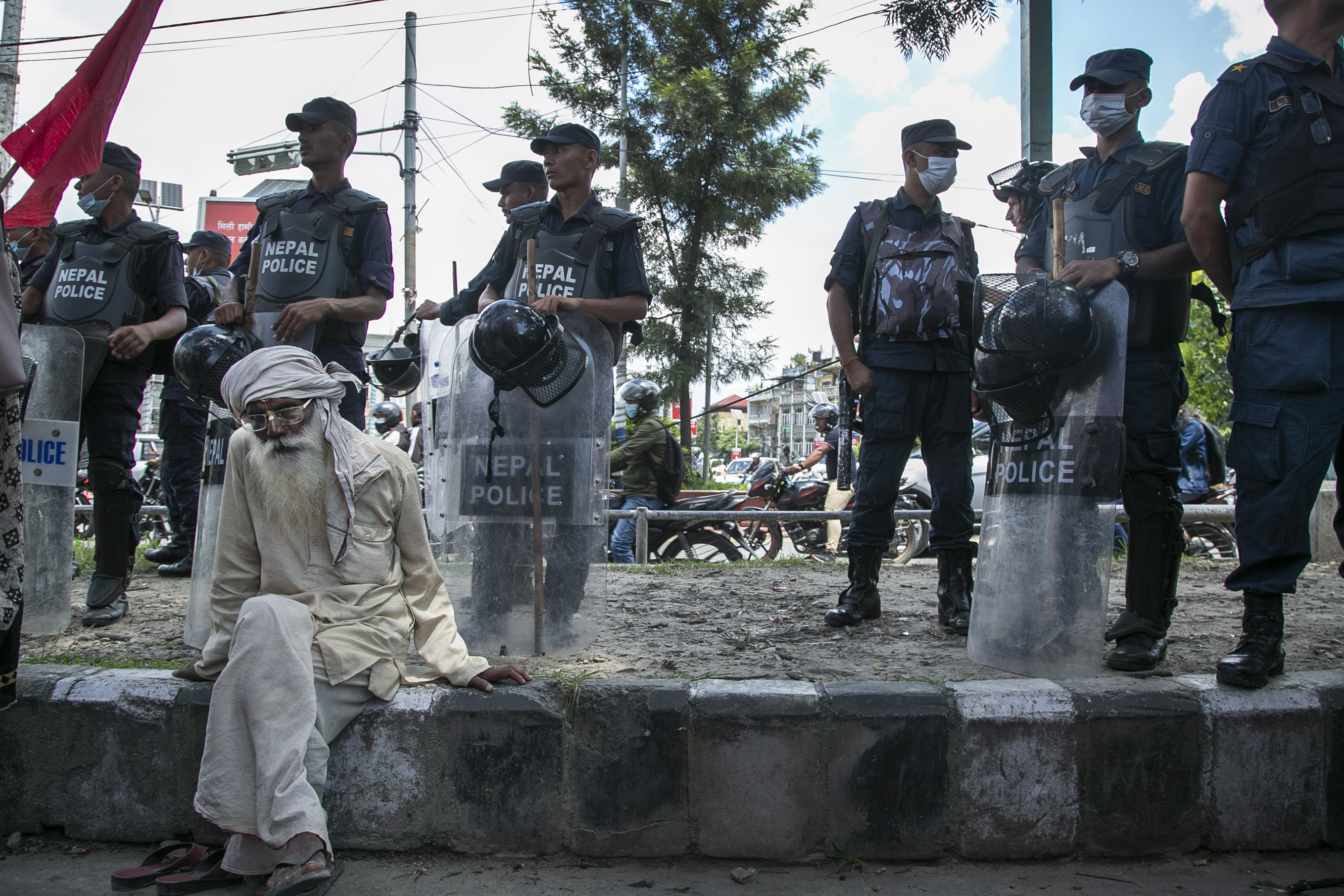
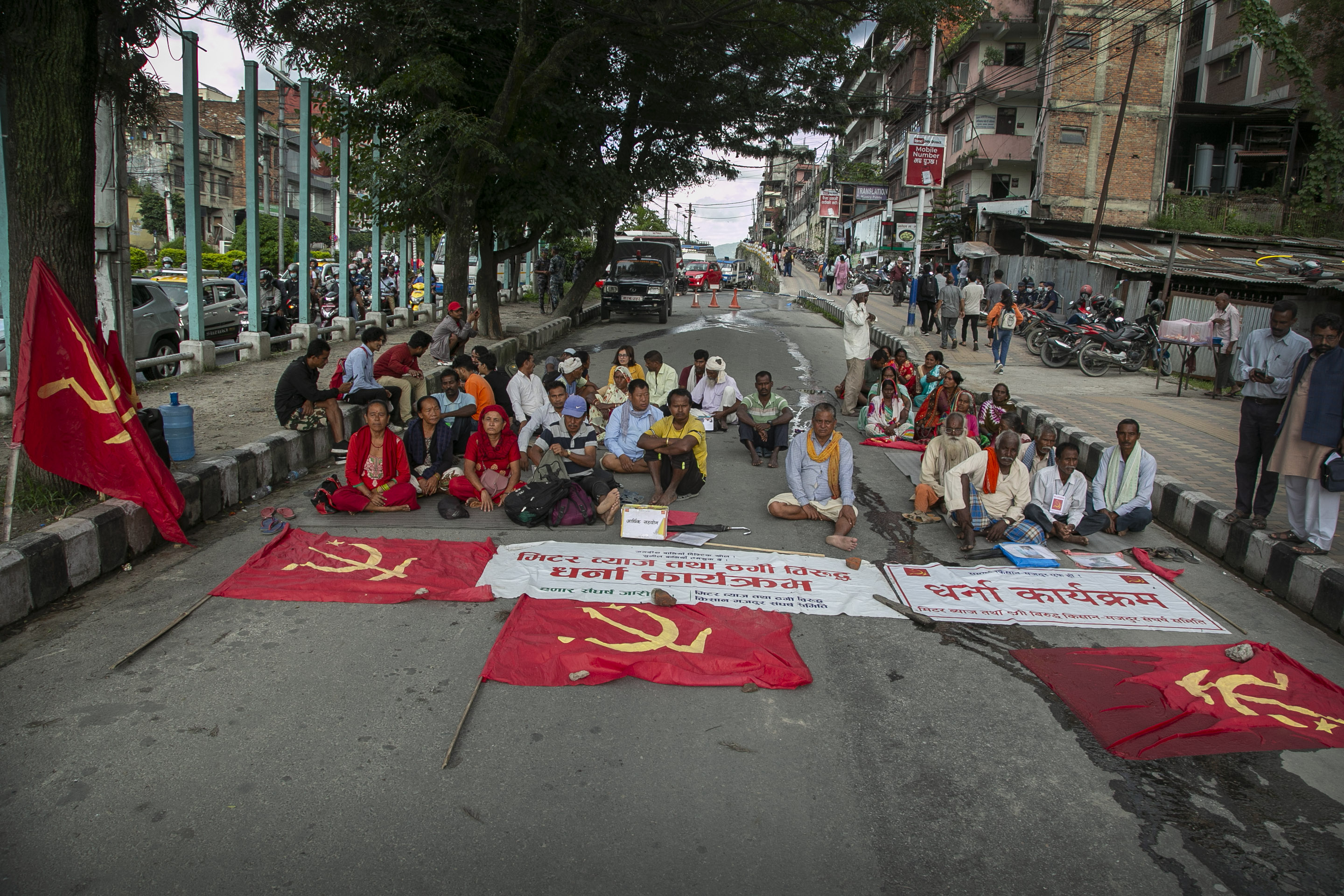
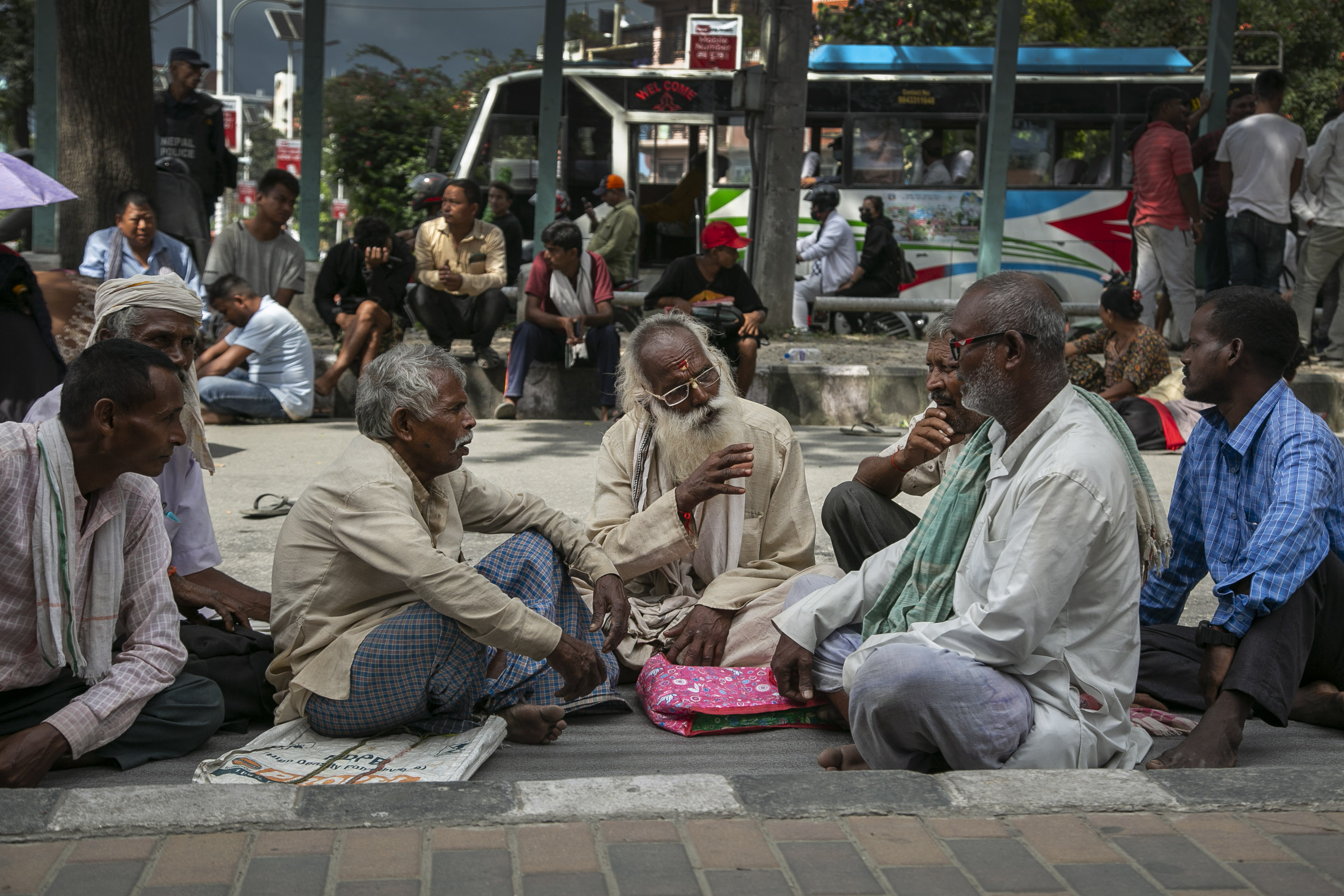
The "meter byaj" victims protesting at Maitighar have been staying in a temporary shelter in Kirtipur. Koiri begins his day at 6 in the morning, and the first thing he does is wait for his turn to use the toilet. There is only one toilet for 60 people, so Koiri usually ends up waiting for a long time. After using the toilet, Koiri goes to fetch water for bathing from a well that is 200 metres from the shelter. After a bath, Koiri starts his morning puja, which keeps him busy for an hour and a half.
After finishing puja, Koiri and his 70-year-old wife, Fekana Devi, start preparing the day's meal. By 9:30 am, everyone in the shelter, including Koiri and his wife, leaves for the protest site. Koiri and his wife prefer to sit side by side as they commute on the bus. The protesters get off the bus at Tripureshwar and start walking to Maitighar, chanting slogans. Despite age, Koiri vigorously chants slogans.
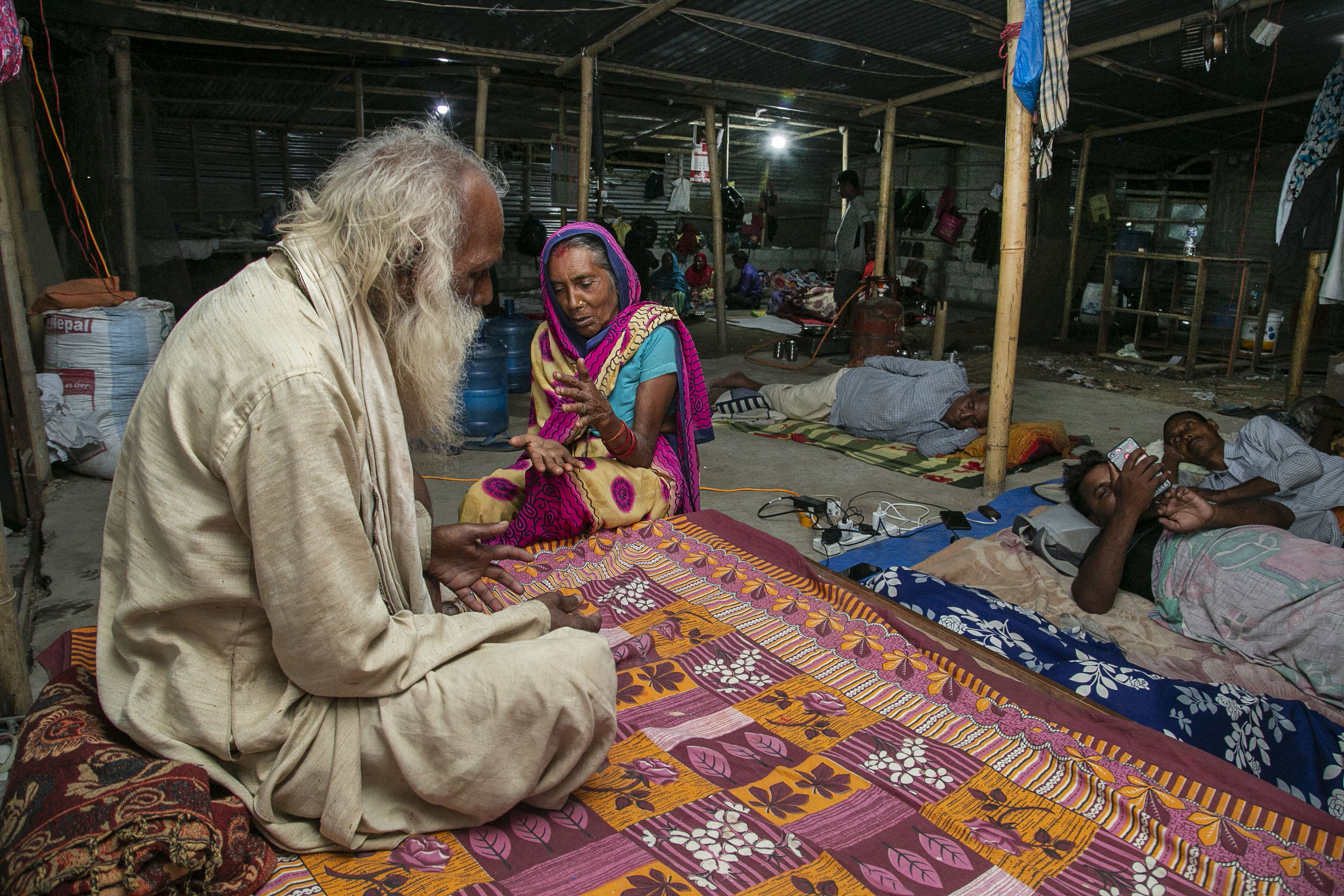
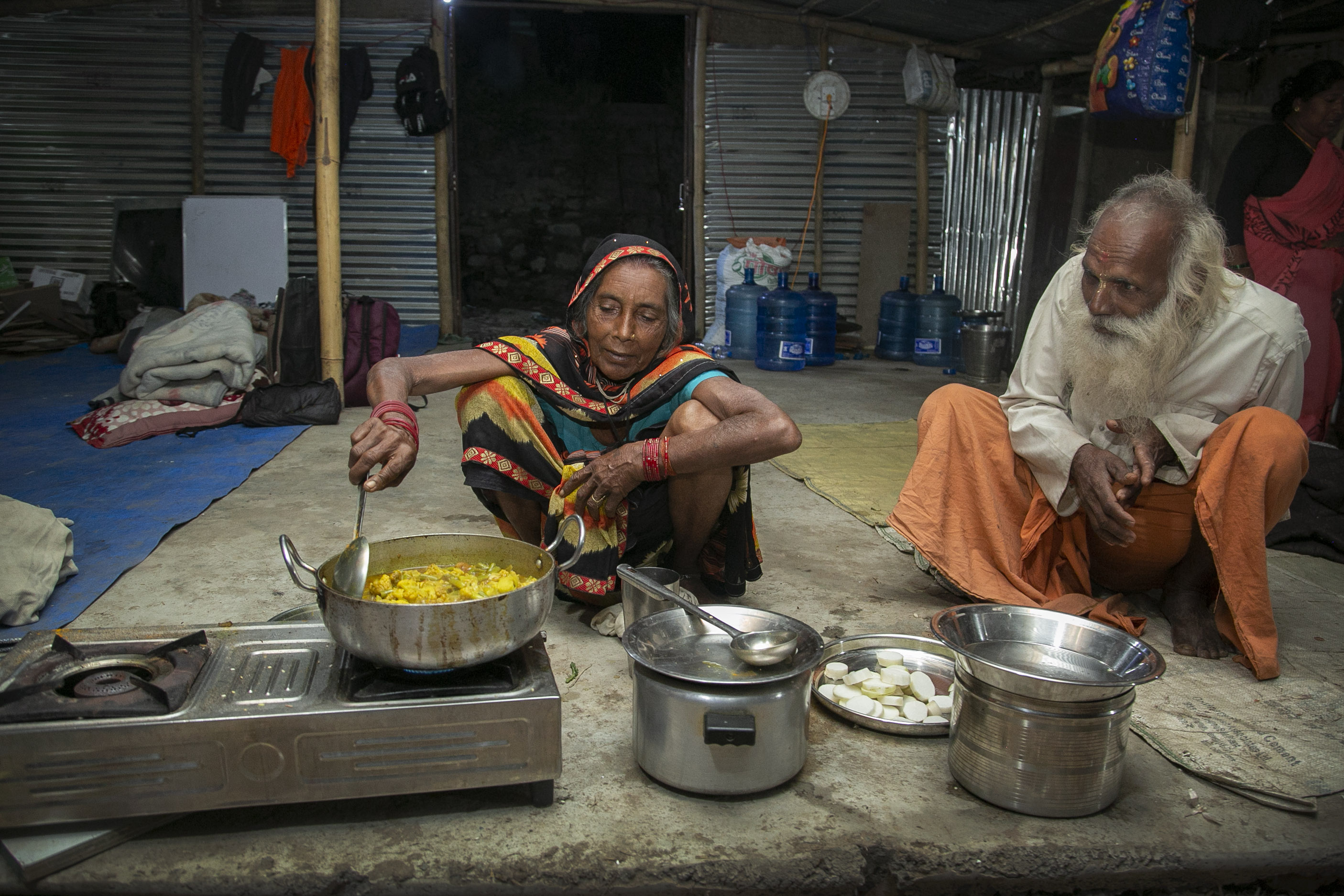
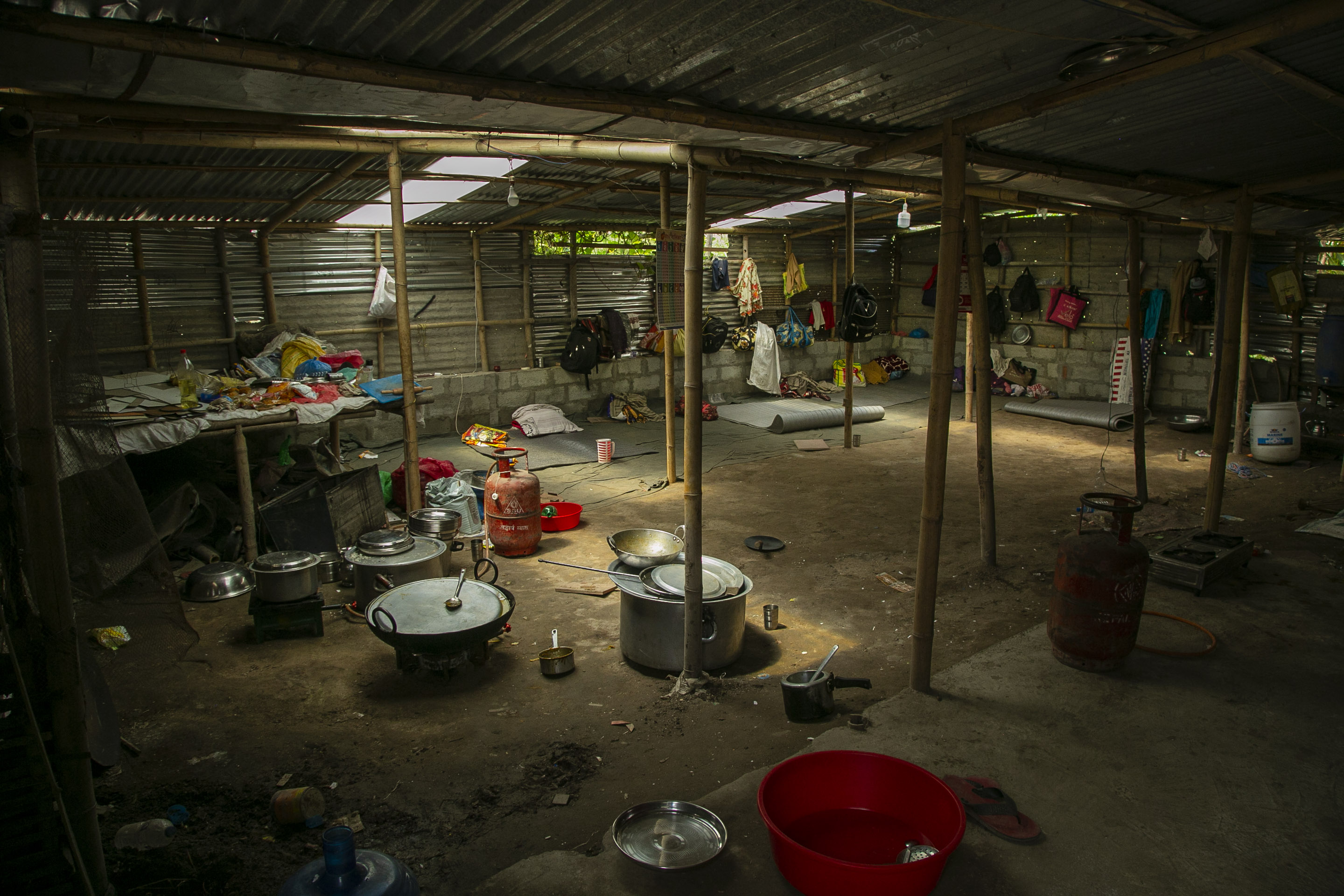
Around 5 pm, Koiri and the other protesters head back to their tin shed in Kirtipur. Once back in their temporary home, some protesters go out to raise donations from the locals, and others go to the market to ask for vegetables and food items for free.
Even though the last 18 days have been physically exhausting for Koiri, he says giving up now is not an option. "I will not return to my village until justice is served, even if that means drawing my last breath here," says Koiri.
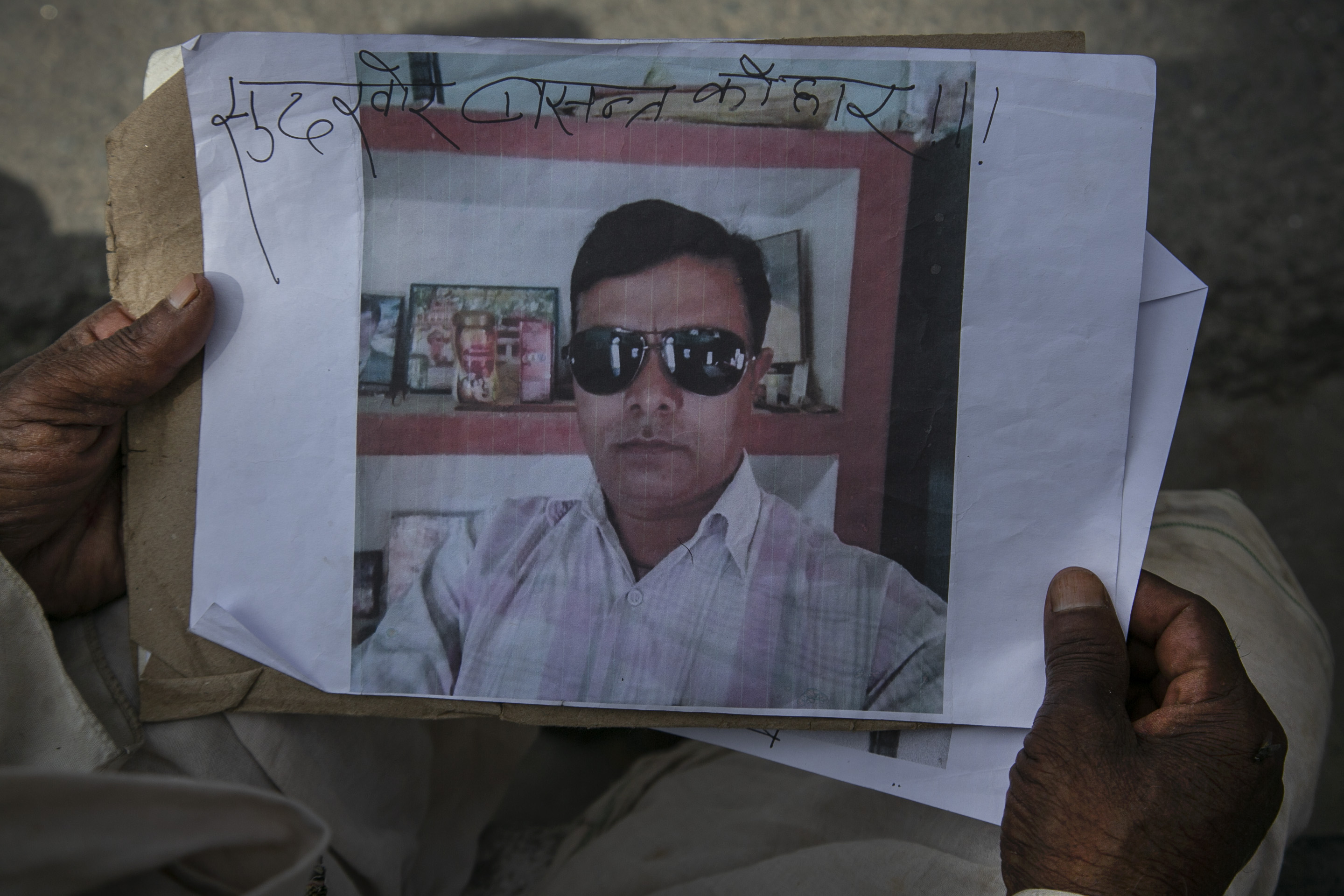
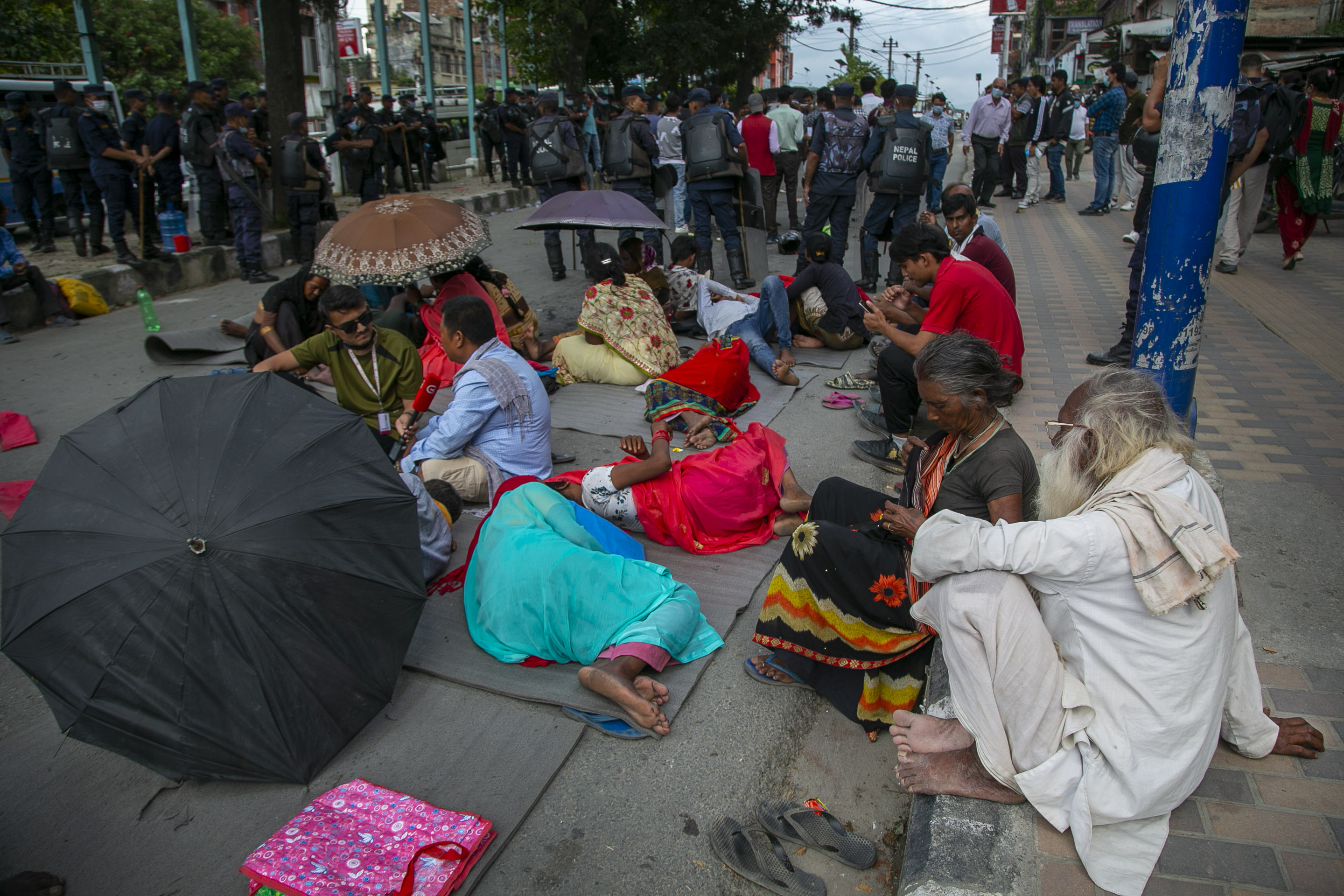




 10.12°C Kathmandu
10.12°C Kathmandu.jpg)

